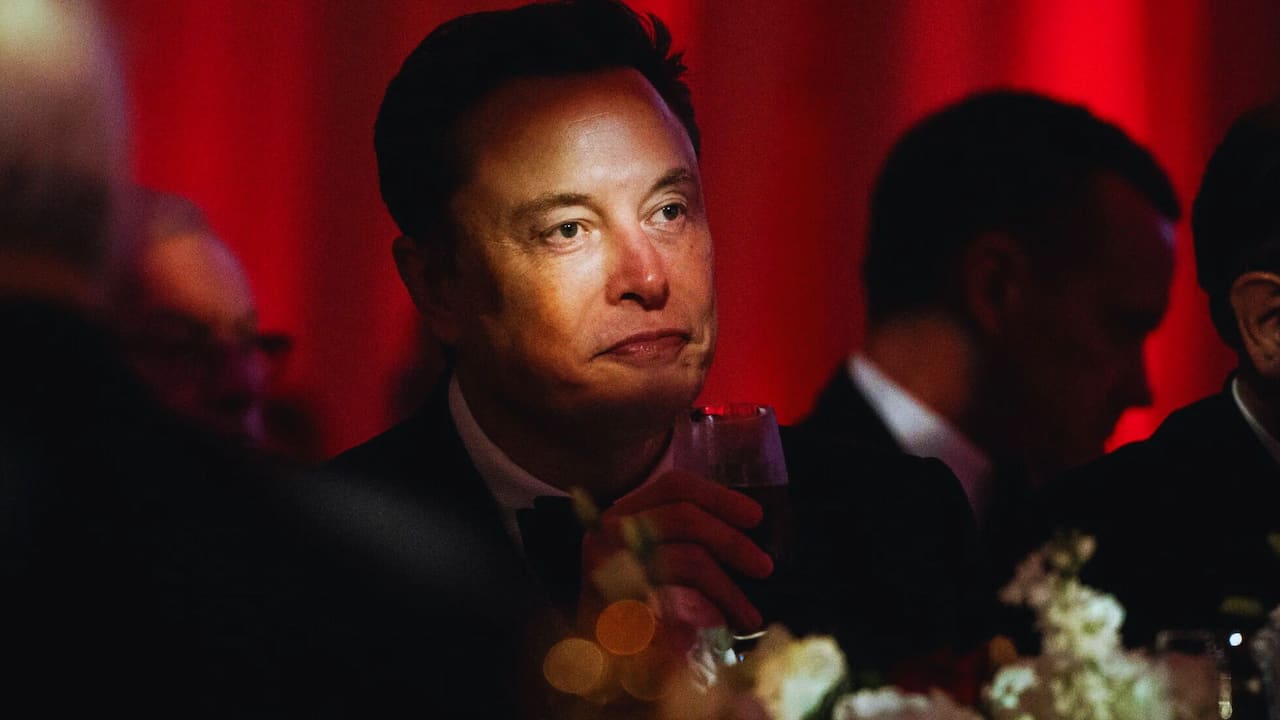Power Play: How Three Social Media Posts Revealed a Seismic Shift in Tech’s Political Landscape
In a dramatic display of how quickly power dynamics can shift in the tech world, a brief social media exchange between Elon Musk and Jeff Bezos has highlighted the changing relationship between Silicon Valley’s elite and the incoming Trump administration.
The story began with a late-night post on X (formerly Twitter) from Musk, who claimed he had learned at Mar-a-Lago that Bezos was predicting Trump’s defeat and advising others to sell Tesla and SpaceX stock. The exchange that followed was brief but telling:
“Just learned tonight at Mar-a-Lago that Jeff Bezos was telling everyone that @realDonaldTrump would lose for sure, so they should sell all their Tesla and SpaceX stock,” wrote Musk, adding a snickering emoji.
Bezos’s response was swift and direct: “Nope. 100% not true.”
Musk’s final reply seemed casual: “Well, then, I stand corrected,” accompanied by a laughing-crying emoji.
But beneath this seemingly simple exchange lies a complex web of power, politics, and personal rivalry that could shape the tech industry for years.
The New Power Dynamic
The significance of this exchange goes far beyond mere billionaire banter. With President-elect Trump’s recent victory and his appointment of Musk as co-leader of the new Department of Government Efficiency (DOGE), the Tesla CEO now wields considerable influence in Washington. This appointment, shared with Vivek Ramaswamy, puts Musk in a unique position to shape government policy and potentially influence regulations affecting his competitors.
This development is particularly noteworthy given Trump’s historical friction with Bezos. The president-elect has repeatedly criticized Bezos, particularly regarding his ownership of The Washington Post.
While The Post chose not to endorse any presidential candidate this year—a decision Bezos publicly defended—the tension between Trump and Bezos remains palpable.
The Stakes Are High
The implications could be significant for Bezos. As founder of Amazon and Blue Origin, his business interests span e-commerce, cloud computing, and space exploration—all sectors that could be affected by government policy and regulation. With Musk now holding a key position in the incoming administration, the competitive landscape could shift dramatically.
A New Chapter in Tech Leadership
This development marks a significant shift in Silicon Valley’s relationship with Washington. Traditionally, tech leaders have maintained a careful distance from partisan politics. However, Musk’s direct involvement in the Trump administration signals a new era where tech executives might take more active roles in government.
The ripple effects of this power shift are already being felt. Following Trump’s victory and Musk’s appointment, Tesla and SpaceX stocks have seen significant movement, demonstrating how political connections can directly impact market valuations.
Looking Ahead
As we move toward Trump’s second term, the tech industry is watching closely to see how this new power dynamic will play out. Will Musk’s position in the administration lead to major changes in how tech companies are regulated? How will this affect the ongoing space race between SpaceX and Blue Origin? And what does this mean for the future of big tech’s relationship with the government?
One thing is clear: the days of Silicon Valley operating independently from Washington politics may be over. As tech leaders become more directly involved in government, we may see a fundamental reshaping of how technology companies interact with federal policy.
This three-post exchange, brief as it was, might well be remembered as the moment when the tech industry’s political landscape changed forever. For Musk and Bezos, their longtime rivalry has entered a new chapter where the stakes are higher than ever before.
